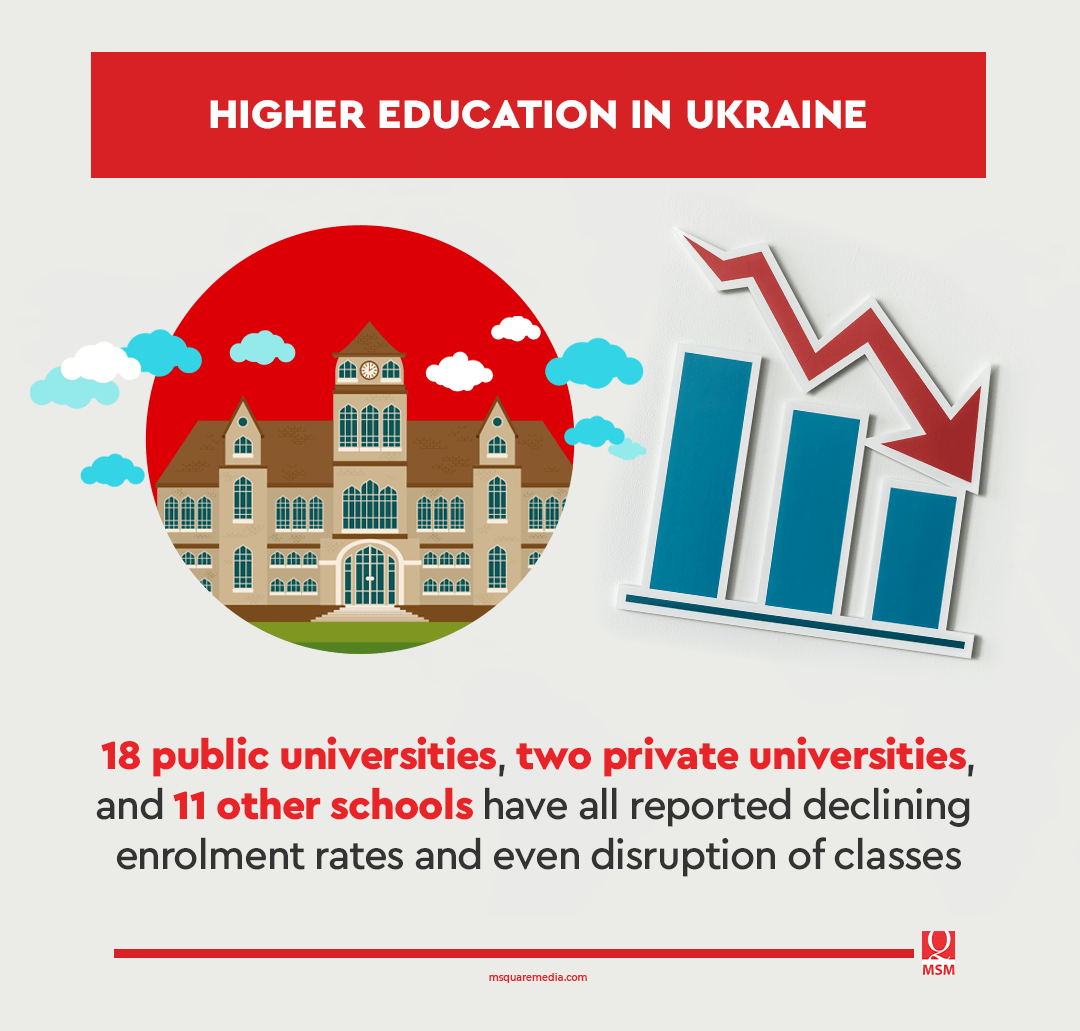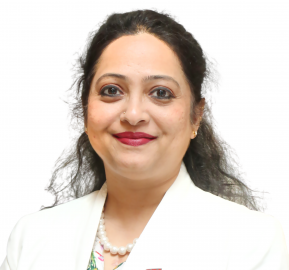Key Takeaways:
- The Ukrainian-Russian conflict all began in 2014 after the annexation of Crimea.
- The higher education sector, which has grown since Ukraine became a Soviet Republic in 1991, has been greatly affected.
- 18 public universities, 2 private universities, and a host of other schools have suffered either infrastructure damage, displacement of students and staff, or disruption of classes and other activities.
The ongoing conflict between Ukraine and Russia has not only raised tensions within the region but has also caught the entire world’s attention. The impact is rampant on sectors like higher education, which find themselves being disrupted due to political and economic tensions.
Brief background
When Ukraine gained independence from being a Soviet state in 1991, it set out to rebuild itself by setting up a republic that would provide for the needs of its people. Yet in 2014, Crimea was annexed by Russia, which has escalated today to a buildup of Russian military troops around the Ukrainian border.
Because of this, sanctions have been put in place if parties do not back down. As of this writing, the world awaits to see what both countries’ next moves will be.
Higher Education in Ukraine
Ever since Ukraine became the Soviet Republic, the government has tried its best to build its higher education sector. Research shows that higher education accounts for at least 6 percent of the national Gross Domestic Product (GDP). While this may not sound like much, it has reached the level of top international student destinations such as the US, China, and Canada.

The current Ukraine-Russia crisis has drastically affected the sector. As of late, 18 public universities, two private universities, and 11 other schools have all reported declining enrolment rates and even disruption of classes. Some of the most glaring effects of the current crisis include:
Infrastructure damage: The conflict has resulted in damage to property in these universities and schools.
Displacement of students and faculty: Thanks in no small part to the structural damage, many of these educational institutions have had to close down and classes held elsewhere, if at all.
Disruption: Many classes and higher education activities have had to be suspended temporarily in the name of safety for the students and faculty members.
Psychological effects: War can take its toll on a person’s psychological well-being. The fear of being hurt, or worse, is apparent and may even have a long-term effect on many individuals.
Managing the higher education crisis during armed conflict
Since the conflict began in 2014, the Ukrainian government has created legislation to help mitigate concerns such as displacement and disruption of classes. Yet universities feel that it is not enough. This is why many students have chosen to look elsewhere, such as studying abroad, to “escape” from tensions arising in the region.
To this end, it’s up to educational organizations to provide relief for students seeking to study overseas. Some available options that students can leverage include:
In-country agents who understand their needs and can assist them in looking for a suitable school that offers the program they wish to enroll in.
Visa application and processing can be beneficial, especially now when facilities may be closed or unable to offer their full range of services.
Student accommodation search and bookings done online will help ensure that the students will have a comfortable and secure place to stay once they arrive at their chosen study destination.
Student loans are another useful service as this would help with the student’s liquidity issues, which may be a major concern at the moment
Counseling is one very important service that agents can offer. This goes beyond helping the student find a school, but it can likewise ease their fears and hopefully provide clarity amidst the confusion. Having a listening ear can go a long way.
A hopeful future
Tensions may be high in this part of the world. Yet there is always hope that things will get better. And with international education services, students who wish to study abroad and seek a better life themselves and their loved ones can do so knowing that organizations like MSM have all the bases covered including providing them with a realistic approach towards achieving their dream . All they need to do is fill out the requirements and sign up. (SUNEETHA QURESHI)

SUNEETHA QURESHI
MSM President - Global
Suneetha has more than 10 years of experience in the international education sector. As president of MSM, she fortifies its business development outreach globally, particularly in the face of MSM’s foray into edtech-based recruitment via MSM Unify. She preserves the premium, value-adding services provided to each MSM partner institution, including dedicated teams on the ground, agent management, lead generation and inquiry management, application pre-screening, and student and parent support through pioneering pre-departure briefing sessions.
She has an impeccable track record of successfully launching the representative offices in Asia and Africa of many North American and European higher education institutions. Her key strengths include hiring, training, and developing teams as evidenced by the successful results of the dedicated in-country college and university client teams.
Suneetha also has taken the lead in developing several initiatives at MSM, including building robust standard operating procedures, the Rise ‘n Shine team engagement platform, and the organization’s data analytics and audit segments.

